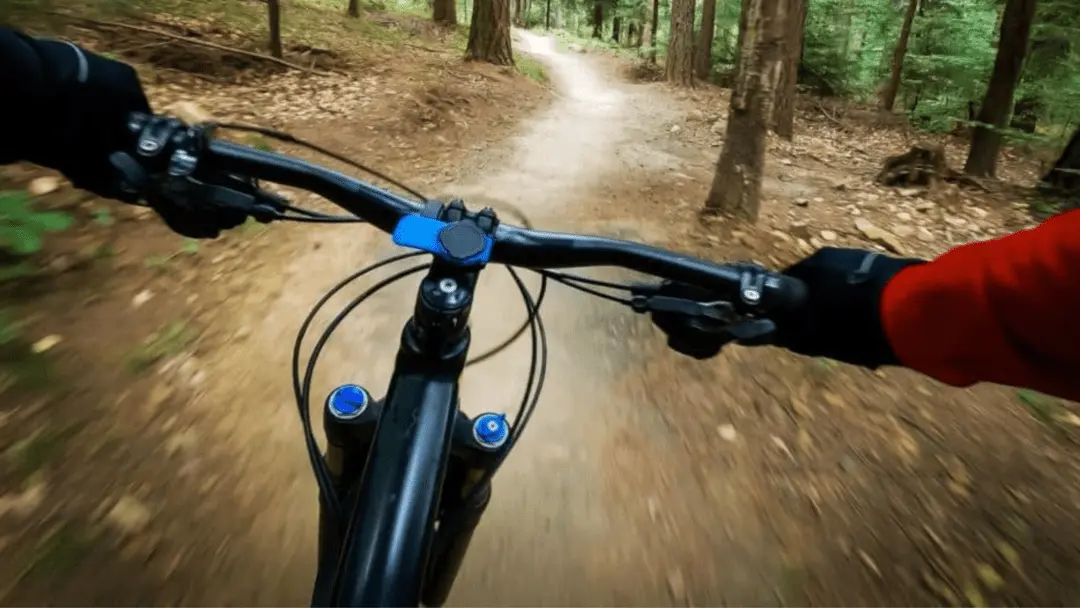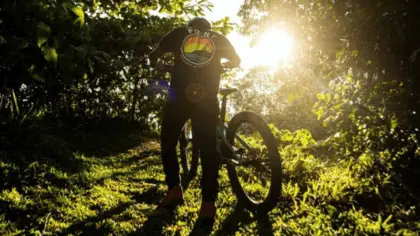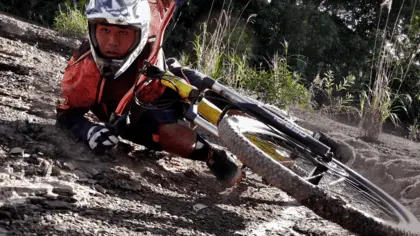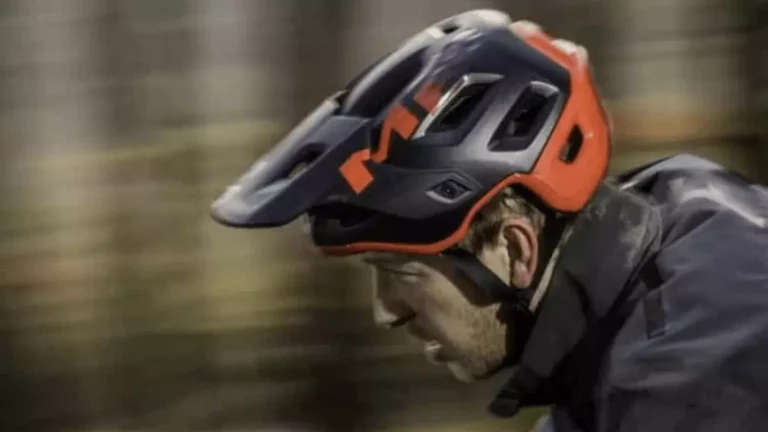Should I Mountain Bike Alone?

You want to go for a ride on your mountain bike but you can’t find anyone to come with you. Or you just want to enjoy a good ride by yourself. But before hitting the road, you may ask yourself: should I mountain bike alone?
There is no reason why you should not mountain bike alone if you are an experienced rider. Provided you are prepared, know your route, and have lots of experience, mountain biking alone can be an excellent form of escapism, relaxation, and exercise.
There really is nothing quite like riding when out in the fresh, open air surrounded by gorgeous natural scenery.
When we say “prepared”, we mean a number of different things. First and foremost, you should feel in top condition in terms of health.
You should also be absolutely certain that all aspects of your bike are in good shape. You should have a route planned out, preferably written down or on a map for reference in case you get a little lost.
You should have the expected duration of the bike ride firmly in your mind and pack your backpack accordingly with the essentials such as a puncture repair kit, a spare chain link, enough water, and energy in the form of snacks or energy drinks, a first aid kit, your phone in case of emergencies, and anything else you think you may need.
Should I Mountain Bike Alone as A Beginner?
However, we would never encourage an inexperienced rider or beginner to mountain bike alone. In the early days of your riding journey, we recommend that you buddy up with an experienced rider.
If you don’t have anyone who is experienced then we highly recommend looking for a group you can join or even researching to see if there are any professionals or experienced riders offering training.
The same goes for the more experienced riders who are trying out a new or more advanced riding trail. If you do not have experience with your planned trail then it is a good idea to ride with someone else.
Mountain biking alone is rarely going to be a totally safe option, even for more experienced riders. However, provided you are well prepared and have some experience under your belt it can be enjoyable and you should be able to reduce your risk as much as possible.
That being said, we want to reiterate the importance of riding in a pair or even a group if you are an inexperienced mountain biker or beginner.
Related Article: Riding mountain bike on road
How dangerous is mountain biking?
Mountain biking can be dangerous for any rider, whether you have years of experience or as a beginner.
Of course, if you are a beginner then it does make sense that it would be slightly more dangerous as you are not used to the different trails and the act of riding the bike.
That being said, this does not mean that the risks drastically decrease when you have a few years of experience under your belt. Care and caution should be exercised at all times.
Mountain biking injuries are relatively common, especially when you start to traverse more intense trails and inclines.
Of course, any activity where you are riding a bike puts you at risk of a fall, so it is absolutely vital that you protect the parts of your body that are particularly vulnerable such as your head and your neck. You may also want to protect your knees and elbows.
Some of the most common injuries sustained associated with mountain biking include broken collar bones, broken wrists, deep cuts and scrapes, sprains and strains, and fractures in various parts of the body.
The majority of these injuries tend to occur when riding downhill, highlighting the importance of brakes that work well and quickly. It is also worth noting that your risk for these types of injuries increases greatly with tiredness.
Never ride past your comfort level. If you start to feel fatigued then it’s time to call it a day!
It is certain that many of these common injuries could be made much worse if there was no protective gear involved. For example, any sort of fall where the upper body is injured could have easily turned into a head trauma situation.
The speed at which you are riding your bike and the impact of hitting the ground could cause serious wounds or bump to the head. Thankfully, because the majority of injured riders wear helmets, this is often prevented.
A helmet is absolutely essential. If you think that you can leave the helmet at home just because you have some experience on a bike then think again.
A truly experienced rider of mountain bikes will know that there is never a time when it is ok to ride without a helmet. A friend of mine was once riding downhill and came off their bike, hitting their head on the ground so hard that their helmet cracked and was unwearable.
Thankfully they were fine, just some scrapes and a headache for a day or so. Imagine they hadn’t been wearing that helmet….

Steve Beck is a passionate cyclist and experienced writer covering the cycling industry for over a decade. He has a wealth of knowledge and expertise in all bike-related things, from the latest products and technologies to the best routes and trails. His articles are well-researched, informative, and engaging, and he has a talent for explaining complex cycling concepts in a way that is easy to understand. Steve can be found on the road when he’s not writing about bikes, putting his knowledge and skills to the test.








